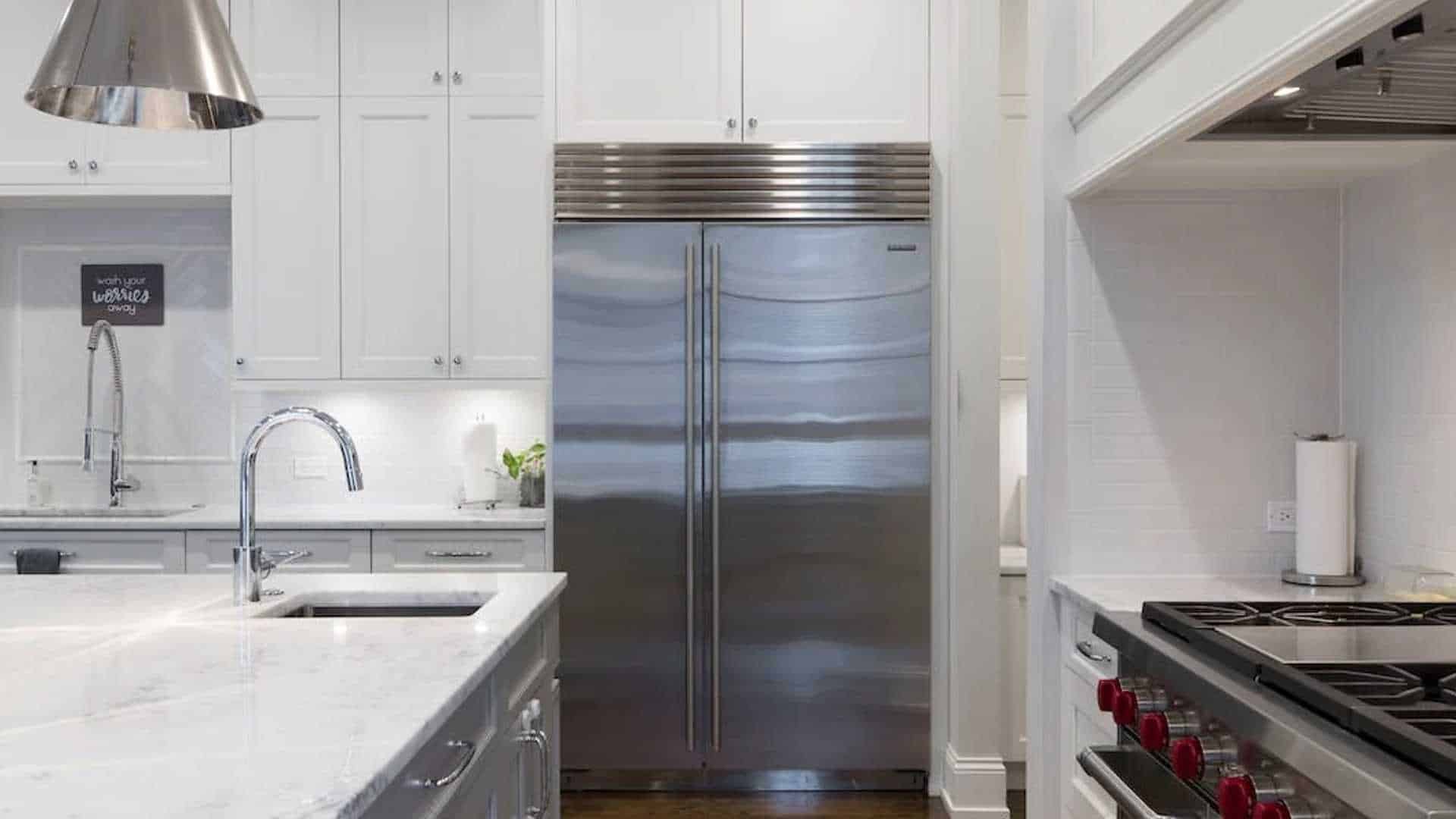Should I Repair or Replace Appliances? What Every Landlord Should Know
- October 11, 2022
- admin
- Category: Property Management

Whenever an appliance is outdated and inefficient the biggest question that comes to the landlord’s mind is – should I repair or replace appliances for my rental property? However, appliances frequently break before they should, making the choice between repair and replacement more difficult. Additionally, you might reconsider given the replacement cost. If you don’t have enough money, you might have to try and fix the item yourself. However, if you have the money, you could be better off replacing it with a brand-new, energy-efficient one.
Your rental property will likely come equipped with standard appliances like a stove/oven, refrigerator, microwave, and dishwasher. Some might even have an air conditioner, a washer, and a dryer. Even though many apartments should have some of these appliances, landlords are not obligated by law to do so. The choice of whether to offer them to the tenant is entirely up to the landlord.
So should you repair or replace the appliance?
Who provides the appliances?
Before you decide to repair or replace the appliance, you should first understand who provides the appliances. As there is no legal requirement for appliances, you must first review the lease. The provision of specific equipment by the landlord may be stated in your rental agreement. In this case, it is more likely that the landlord will be liable for any repairs or replacements.
The following question is if the landlord truly provided the appliances. If your landlord does give you an appliance, they normally take on the burden of maintaining and running that device. The appliance will likely still be present when you leave out if it was there when you moved in. While routine maintenance and cleaning of the item would often fall under your purview, significant repairs or replacements will typically be handled by the landlord.
Tenant Accountability
If your landlord does give you an appliance, they normally take on the burden of maintaining and running that device. Of course, they might transfer the duty to the tenant, you. However, your lease agreement needs to make sure of that in detail. The terms and level of duty will be outlined in the lease.
Additionally, you are responsible if you break an appliance that was provided by the landlord in particular circumstances. Your best course of action in such a situation is to inform the landlord and ascertain their preferred course of action. If the tenant is accountable then there won’t be any confusion about whether you should repair or replace appliances.
There might be challenges to decide whether to repair or replace appliances. Here are some recommendations to aid with your decision.
-
Maintain Control Over Appliances
Amazing features like appliances may set your rental property apart from the competition when it comes to luring in top-notch tenants.
However, managing the appliances in your rental homes can cause you much too much worry and effort without some sort of systematic approach to tracking purchase, maintenance, and condition. Create a system for appliance inventory that works for you to safeguard you, your renter, and your bank account.
-
Is it damaged?
We become so upset when appliances go down that we fail to see the obvious. Before panicking, confirm:
- The device is plugged in.
- Not a single circuit breaker has tripped. There is no uneven flooring, which can prevent some appliances from turning on.
- There aren’t any dust and lint clogs in the vents or filters.
- What’s the appliance’s age?
The normal lifespan after which a machine is operating on borrowed time is the average useful life of an appliance. The more prudent it is to replace rather than repair your equipment, the closer it is to its potential past-due date.
-
Tips for Applying the 50% Rule
Appliance repairs cost between $100 and $300 in 2021. Do you want to pay for it?
You should replace an appliance rather than fix it if it is more than 50% of the way through its lifespan and the cost of one repair is more than 50% of the price of buying a new one.
You must obtain a repair estimate and be aware of the typical lifespan (see above) to perform the math. The majority of service providers charge a “trip fee” to identify the issue. When making the appointment, make sure to inquire about these fees because they can vary greatly. The travel fee is typically not charged if the company fixes the device.
-
Is the warranty still in effect?
If you want to know if the broken equipment is still covered by warranty, check your owner’s manual or records. The majority of appliances are covered by a manufacturer’s warranty, which usually lasts one to three years from the date of purchase and covers the cost of repairs. Make a service call if it is still covered.
-
Do you require a device that consumes less energy?
Every appliance must have an Energy Guide label, which should be black and yellow. It could be time to think about replacing the outdated appliance if it uses a lot of energy to save money in the long term. If tenants are responsible for paying the utility costs, they will appreciate it.
An Energy Star label can be found on several appliances. These labels attest to the appliance’s energy efficiency, which results in a 20% reduction in energy consumption compared to standard versions.
Bottom line
Whenever some rental home appliance breaks down, it can be a serious expense to take care of. The more difficult decision is to get rid of it or get it repaired. It needs a lot of thinking to decide on it and there are many questions to answer to reach the final answer. Sometimes it may seem better to repair the appliance than spend more money to get a new one. But in some cases, repair may be costly and may not last long. In such cases, it is better to get a new appliance. The above points will help you to decide if you need to repair or replace your rental property appliance.





